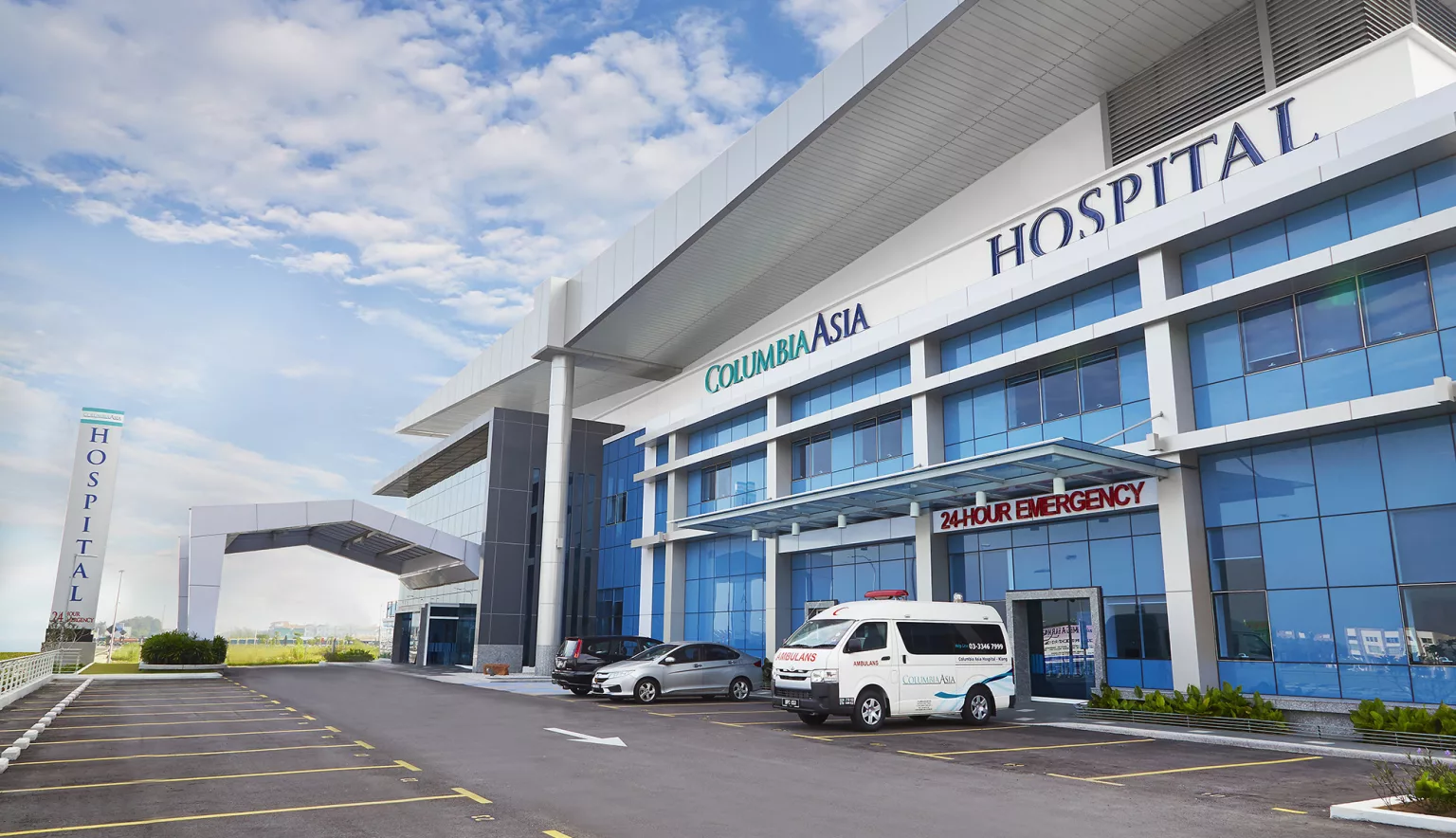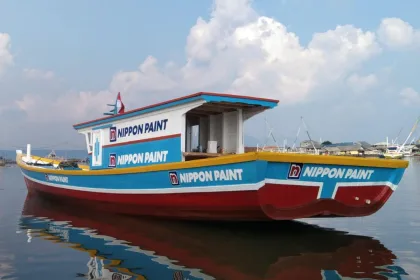Columbia Asia continues to provide efficient, affordable private healthcare services to patients across its 29 hospitals, the backbone of its operation being a team of impassioned, empowered people.
PASSION FOR PEOPLE
Demand for healthcare services across Asia is set to reach $2.66 trillion by 2020.
Growing and ageing populations, pioneering technologies and new treatments are all contributing to the growing tide of people who can and are being treated by public and private institutions.
The ability to identify and treat so many illnesses is arguably one of humankind’s greatest achievements, one that has required enduring ingenuity, patience and willpower over the course of civilisations.
But the current tide is growing to a point where health systems are beginning to buckle.
“The growing demand for good, effective and efficient private healthcare continues to exceed supply,” observes Kelvin Tan, CEO for Malaysia and Vietnam at Columbia Asia. “Populations are growing and getting older, and this is combined with increasing reports of non-communicable diseases which require long-term care.
“Most private healthcare facilities tend to emulate the public healthcare model. Large in structure, cumbersome in delivery, high cost in maintenance and excessive manpower structures driven by many manual and time-consuming processes.
“The escalating cost of healthcare worldwide demands a more efficient delivery system that minimises excesses and cuts back on wastage.”
Columbia Asia is unlike most private healthcare providers.
Having commenced operations in 1997, the group now runs 29 hospitals across the region, with 13 in Malaysia and the others located in Indonesia, Vietnam and India.
Its facilities provide comprehensive medical services such as orthopaedics, general surgery, urology, internal medicine, obstetrics and gynaecology, paediatrics, ENT, ophthalmology and dermatology.
“With the rapidly rising non-communicable disease (NCD) rates as well as an ageing population which leads to the increase in age-related disorders in the country, Columbia Asia has expanded its medical programmes in recent years to provide more subspecialty focused services,” Tan adds.
“This includes services in cardiology, bariatric surgery, neurosurgery, neurology, spine surgery, reproductive medicine, nephrology and sports medicine.”
These speciality solutions are supported by ancillary services such as pharmacy, radiology, laboratory and physiotherapy, with additional services including an intensive care unit, special care nursery, labour rooms, and fully equipped operating theatres and ER departments.
For Tan, the idea of joining the Columbia Asia journey in 2006 was to help build an organisation that provides effective, efficient and affordable healthcare; an inspiring mission that is both rewarding and meaningful.
“I have always found the healthcare industry interesting and rewarding,” he says. “The advancement in medical research and new technologies have certainly added years to the lives of many patients. New precision diagnostics, advanced pharmaceuticals and pin-hole surgeries have helped minimise the traumatic phase of the patient’s recovery period.
“The development of medical health insurance over the past decade has also helped alleviate the pressure on public hospitals – being part of this evolving and transforming industry is both inspiring and satisfying.”
BUILT BY PEOPLE
So, why is Columbia Asia unlike most other private healthcare entities?
Tan identifies three differentiating factors, the first being the knowledge and passion of its employees who are dedicated to saving and transforming lives.
He comments: “As Peter Drucker once said, culture eats strategy for breakfast, operational excellence for lunch and everything else for dinner. The success of Columbia Asia today, we believe, is because of the strength of the people in the organisation. The values that they hold on to forms the culture of the organisation.
“And this culture of continuous improvement and the intrinsic values of Columbia Asia’s people must be firmly entrenched on trust and integrity, and consistently lived out day to day. This is one of the key pillars that will set us apart.”
Medical professionals, not surprisingly, are in high demand. Tan admits that it is an ongoing challenge to find ideal candidates, explaining how Columbia Asia looks beyond the fundamental academic and job skills and into the beliefs and values of every applicant.
“Skills can be developed,” he says. “Training is provided to the medical staff, especially the nursing team. We offer sponsorships for post-basic training. Upon completion of the training, the trainee will be employed in a related field.”
Furthermore, Columbia Asia has also launched a succession planning programme, a scheme which selects operational managers from the existing pool of high potential employees who are then placed onto a development programme with a view to becoming operational managers or general managers.
This ensures a high degree of clinical governance runs through the organisation, Tan’s second differentiating factor, and one which ultimately leads to superior patient care across the board.
“Our clinical governance follows our very comprehensive standards of care as spelt out in our medical bylaws, focusing primarily on service quality, conduct and ethics,” he adds. “Our medical advisory board oversees the overall function of the medical advisory committees, which are established at each Columbia Asia hospital as required by the local Private Healthcare Facilities & Services Act.”
OPERATING SMART
The third point of difference centres around operational efficiency and ensuring best possible value for patients.
Columbia Asia’s hospitals are designed to reduce excesses in the patient ecosystem, and located as close as possible to the communities they are built to serve.
“Big hospitals incur a lot of structural costs, maintenance costs, utility bills, manpower costs and ultimately result in long gestation periods to achieve breakeven,” Tan explains. “All these inflated costs will be transferred somewhere, and often it will end up in the patients’ bills.”
Technology is also helping Columbia Asia to operate smarter.
For example, it has installed an advanced hospital information system (named CARE21) that creates a near paperless working environment for both staff and patients, and enables doctors to make faster and better decisions regarding diagnosis, treatment and recovery.
Average length of stay (ALOS) is another area in which Columbia Asia has emerged as a healthcare leader, something which Tan explains is further enhanced by technological innovation.
“New medical technologies over the recent decade have helped to decrease the number of invasive surgeries and improved recovery time, resulting in shorter average length of stay,” he says.
“The new technologies have allowed us to achieve better and more efficient patient outcomes. Generally speaking, Columbia Asia’s ALOS for most patients is approximately two days, which we have found to be 20 to 30 percent shorter than most other healthcare facilities.”
Patients are also benefiting from a recently launched app through which they can book appointments, send enquiries and make payments.
REMAINING COMPETITIVE
Such technological advances will continue to keep Columbia Asia competitive in the future, a future which Tan admits will be a challenging one.
“We have been consistently analysing and realigning our business strategy,” he adds. “Issues faced by the public hospitals, rising private healthcare costs, medical tourism, ageing populations, increases in non-communicable disease and technological disruptions are impacting the healthcare industry.”
“To remain competitive in this challenging environment, Columbia Asia has been taking approaches like improving case mix intensity through pursuing higher acuity cases, optimising our central procurement processes, investing in more efficient operating systems and upgrading our diagnostic equipment to stay ahead with technology.
“We are focusing on more customer centric initiatives by implementing continuous improvement programmes and improving our marketing mix in both conventional and digital media to help uplift the brand.”
The company is also expanding its capacity and capability at a rapid rate, whether it be developing services in nephrology, neurology and neurosurgery or expanding the size of its hospitals in Malaysia, Indonesia, Vietnam and India.
Indeed, the latest addition to the group (at Tebrau in the Johore Bahru district of Johor, Malaysia) is set to be operational by end 2019. In addition, two new Malaysian hospitals are also being developed in Batu Kawan (Penang) and Miri (Sarawak).
Columbia will continue to consider greenfield and brownfield developments as and when opportunities arise, Tan’s concluding remarks painting a positive picture for the future of the organisation.
“We believe that the Columbia Asia’s strategic direction with the vision of ‘we have a passion of making people better’ has differentiated the brand from the competition, as we remain inspired by that same passion across the group.
“Good quality healthcare focusing on driving towards efficient and effective patient outcomes will continue to place us as a top of the mind healthcare provider.”





































